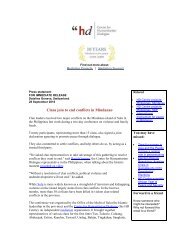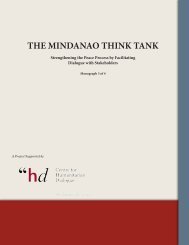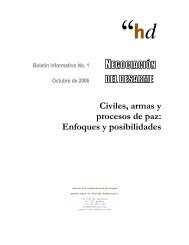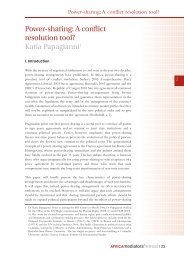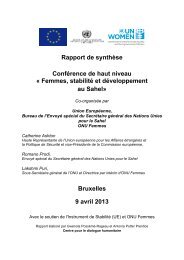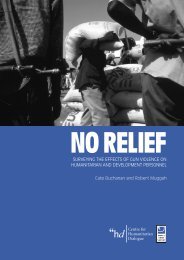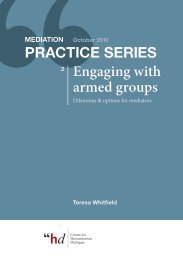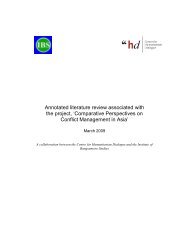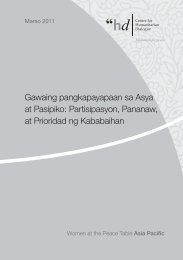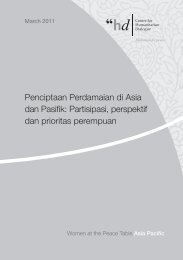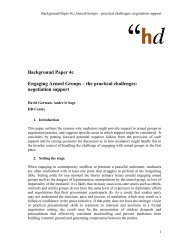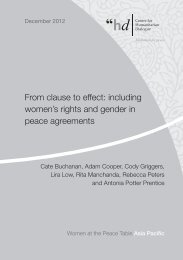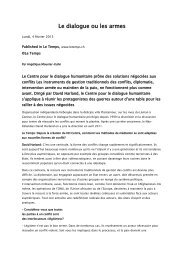Pagpati'ut - Centre for Humanitarian Dialogue
Pagpati'ut - Centre for Humanitarian Dialogue
Pagpati'ut - Centre for Humanitarian Dialogue
Create successful ePaper yourself
Turn your PDF publications into a flip-book with our unique Google optimized e-Paper software.
Mediating Violence In Sulu<br />
28<br />
The State. The state, as part of its state-building ef<strong>for</strong>ts, has used a variety<br />
of means to ‘win-over’ the Moro communities. Using the carrot-andstick<br />
<strong>for</strong>mula, it has instituted programs and allocated resources meant<br />
to win over and co-opt key Moro leaders, with the hope that these key<br />
<br />
and accept the authority of the state.<br />
Simultaneous with the ‘winning-over’ the key leaders strategy would be<br />
the state’s ‘acculturation’ strategy through (a) an imposed standardized<br />
education, (b) <strong>for</strong>ced connection between Christians and Muslims by<br />
creating Christian settlements carved in the heart of Muslim communities,<br />
and (c) government policies meant to break the economic power of the<br />
Moro clans.<br />
Completing the triad strategy of the state are the <br />
campaigns meant to silence the more vocal and assertive Moros who<br />
continue to openly resist the state’s appropriation of authority in Muslim<br />
communities.<br />
These state ef<strong>for</strong>ts would later prove to be major concerns, if not major<br />
debacles. Foremost would be the fact that the discriminatory policies<br />
en<strong>for</strong>ced by the state further incensed the Moros, and consequently,<br />
strengthened their communal (political) identity.<br />
The Moros. Over time, clans grow and their interests also expand. From<br />
<br />
appear. And as family interests begin to <strong>for</strong>k in different directions, the<br />
perception of insecurity over the control of resource – land – also begins to<br />
manifest. This is compounded by the fact that the extent of land controlled<br />
<br />
policies of the Philippine state against the Moros, the continued parceling<br />
of land among families over generations, and the state-sponsored<br />
Christian resettlement in used-to-be Muslim-dominated areas.<br />
Some key Moro leaders have joined the nascent Philippine republic<br />
beginning in the 1950’s to advance the interest of the Moros in the<br />
government (yet there were others joined the government to advance and<br />
protect their own personal interest). This move is viewed harshly by other<br />
Moro leaders and is considered as co-optation and succumbing to the<br />
easy-way-out. These leaders opted to cast their fate in ef<strong>for</strong>ts that assert<br />
the communal identity and rights of the Moros and resist the continued



